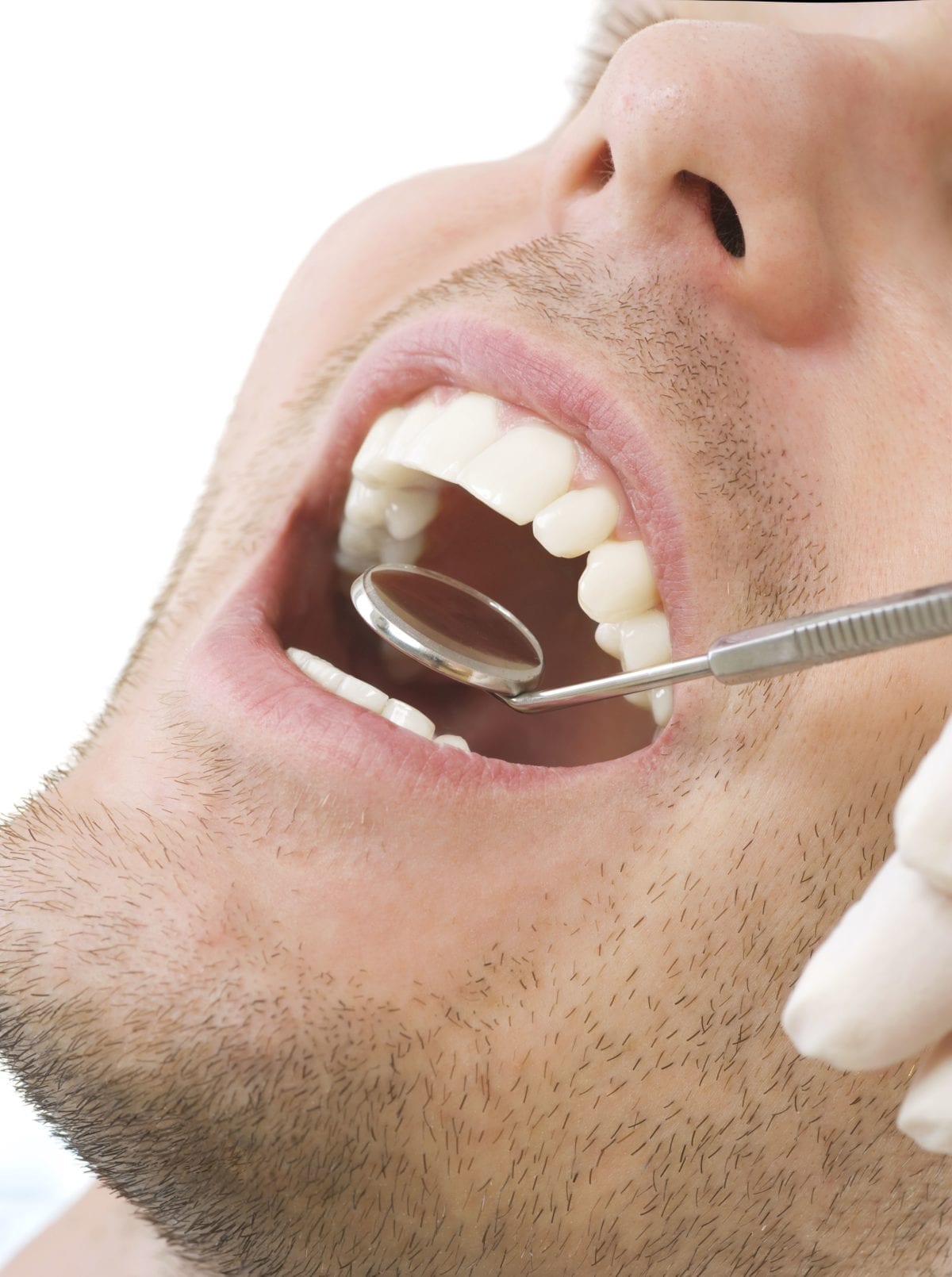 You hear about it all the time during mouthwash and toothpaste commercials on San Diego’s most popular broadcast channels – gum disease. In fact, you may have even heard this dental term so much; you think it’s common, no big deal, and nothing to worry about. We’re here to tell you those ideas are wrong. Gum disease, medically known as periodontal disease, can advance to a serious condition that may include gum recession, bone loss, infection and results in tooth loss for many periodontal patients who don’t get treatment in time. Below, we provide a list of the most common symptoms of gum disease.
You hear about it all the time during mouthwash and toothpaste commercials on San Diego’s most popular broadcast channels – gum disease. In fact, you may have even heard this dental term so much; you think it’s common, no big deal, and nothing to worry about. We’re here to tell you those ideas are wrong. Gum disease, medically known as periodontal disease, can advance to a serious condition that may include gum recession, bone loss, infection and results in tooth loss for many periodontal patients who don’t get treatment in time. Below, we provide a list of the most common symptoms of gum disease.
The Top Symptoms of Gum Disease
Gum disease exhibits itself in three stages: gingivitis, periodontitis, and advanced periodontitis. Here is a discussion of the symptoms associated with each of these stages of gum disease.
-
Gum Disease Stage 1: Gingivitis
Gingivitis is the earliest stage of gum disease, and the easiest stage to combat with a proper oral hygiene regimen. Symptoms of gingivitis include:
- Gums that are persistently swollen and red (you may not notice it yourself, as it is often painless in early stages)
- Blood in your spit after brushing and/or flossing
- Gum lines that are beginning to recede
- Bad breath that just won’t go away, no matter how much mouthwash, chewing gum or mints you use
If you think you are suffering from gingivitis, you should see a periodontist like Dr. Beck right away. A periodontist, who is a dentist with additional, specialized education and training in the treatment and management of periodontal disease, can properly diagnose gingivitis and recommend a treatment plan to reverse the symptoms and stop the progression of gum disease. Typically, gingivitis can be stopped and completely reversed by thorough professional cleaning and practicing proper oral hygiene at home including brushing your teeth twice daily, and flossing your teeth at least once a day. This early stage of gum disease does not involve any bone loss yet, so it’s important to get it diagnosed and treated before it progresses into a more severe condition where the bone around the tooth is affected.
-
Gum Disease Stage 2: Periodontitis
If gingivitis is left untreated, it may advance to a more serious form of gum disease called periodontitis. This is definitely a stage in which seeing San Diego periodontist Dr. Beck is important. In addition to the symptoms of gingivitis, periodontal patients suffering from periodontitis may also exhibit:
- Soft tissue loss in your mouth, including your gums (ie, receding gums)
- Reduction of jawbone tissue resulting in spacing between the teeth
- Red swollen gums
- Gums that feel very sensitive when you brush or floss
- Deep pockets of bacteria (or even pus) developing in your gums, around your teeth
- Bad breath or taste that that won’t go away, no matter how much you brush or gargle
- Permanent teeth that are starting to loosen or become uncomfortable to bite on
- Noticing that your teeth no longer fit together when you close your mouth
San Diego residents who are experiencing any of these above symptoms should see Dr. Beck right away. The diagnosis and proper treatment of this stage of gum disease is extremely important to protecting your overall oral health and preventing tooth loss.
-
Gum Disease Stage 3: Advanced Periodontitis
The final stage of gum disease is called advanced periodontitis. San Diego residents experiencing advanced periodontitis may notice the following, troubling symptoms:
- Chronic bad breath (sometimes only noticeable by loved ones)
- Swollen gums that frequently bleed
- Gums that are receding so much, they are displaying tooth roots
- Teeth that are loose or begin to shift and move
- Very severe jawbone tissue loss
- Teeth that are either falling out or need to be surgically extracted because they are no longer functional.
Contact Dr. Beck if You’re a San Diego Resident Who Thinks You’re Suffering from Any Stage of Gum Disease
If your mouth is displaying any of the above symptoms of the three stages of gum disease, it’s time to see Dr. Beck right away for help and intervention. As a highly educated periodontist, she is specialist to trust with your care if you are concerned about possible gum disease.
To schedule an appointment with her, call her office at (858) 635-6700.









